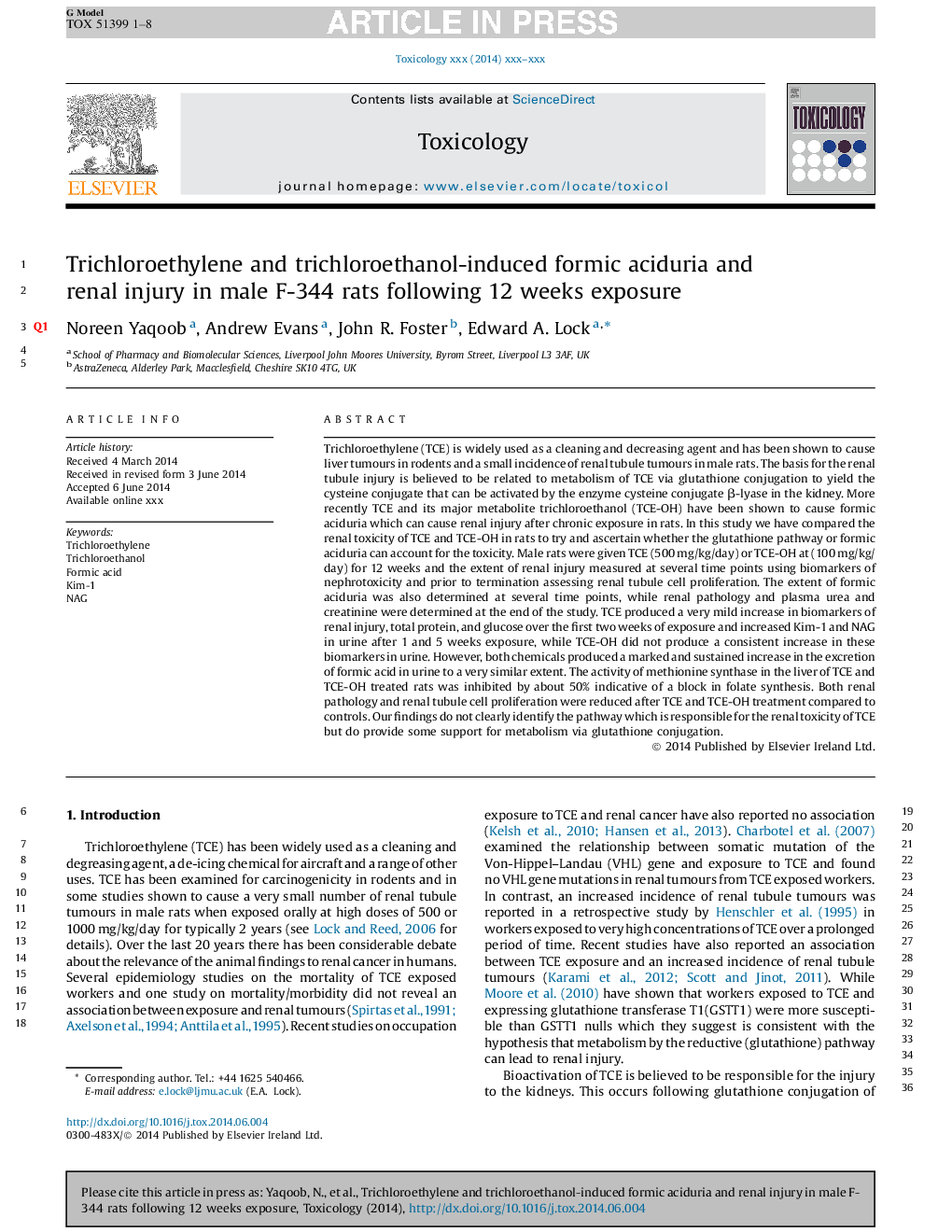| Article ID | Journal | Published Year | Pages | File Type |
|---|---|---|---|---|
| 5859207 | Toxicology | 2014 | 8 Pages |
Abstract
Trichloroethylene (TCE) is widely used as a cleaning and decreasing agent and has been shown to cause liver tumours in rodents and a small incidence of renal tubule tumours in male rats. The basis for the renal tubule injury is believed to be related to metabolism of TCE via glutathione conjugation to yield the cysteine conjugate that can be activated by the enzyme cysteine conjugate β-lyase in the kidney. More recently TCE and its major metabolite trichloroethanol (TCE-OH) have been shown to cause formic aciduria which can cause renal injury after chronic exposure in rats. In this study we have compared the renal toxicity of TCE and TCE-OH in rats to try and ascertain whether the glutathione pathway or formic aciduria can account for the toxicity. Male rats were given TCE (500 mg/kg/day) or TCE-OH at (100 mg/kg/day) for 12 weeks and the extent of renal injury measured at several time points using biomarkers of nephrotoxicity and prior to termination assessing renal tubule cell proliferation. The extent of formic aciduria was also determined at several time points, while renal pathology and plasma urea and creatinine were determined at the end of the study. TCE produced a very mild increase in biomarkers of renal injury, total protein, and glucose over the first two weeks of exposure and increased Kim-1 and NAG in urine after 1 and 5 weeks exposure, while TCE-OH did not produce a consistent increase in these biomarkers in urine. However, both chemicals produced a marked and sustained increase in the excretion of formic acid in urine to a very similar extent. The activity of methionine synthase in the liver of TCE and TCE-OH treated rats was inhibited by about 50% indicative of a block in folate synthesis. Both renal pathology and renal tubule cell proliferation were reduced after TCE and TCE-OH treatment compared to controls. Our findings do not clearly identify the pathway which is responsible for the renal toxicity of TCE but do provide some support for metabolism via glutathione conjugation.
Related Topics
Life Sciences
Environmental Science
Health, Toxicology and Mutagenesis
Authors
Noreen Yaqoob, Andrew Evans, John R. Foster, Edward A. Lock,
